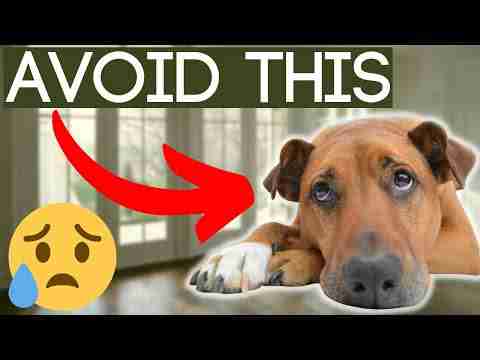FAQs and answers about:
Avoiding Dog Separation Anxiety With Your Dog
What is dog separation anxiety?
Dog separation anxiety is an emotional disorder in which a dog experiences fear, distress and/or depression when left alone or away from their owner. It can manifest as destructive behavior, excessive barking, whimpering, or howling, salivating, and having accidents in the house.
What are some warning signs of dog separation anxiety?
Some warning signs of dog separation anxiety include destruction of furniture and other objects, excessive barking, digging, pacing, hyper-salivation and avoidance of people and places associated with being left alone.
How can I help my dog with separation anxiety?
To help your dog with separation anxiety it is important to provide them with positive reinforcement opportunities; give them plenty of exercise; crate train them so they have a safe space to relax; introduce calming aids such as music or scents; and provide safe chew toys.
Should I reward my dog for not exhibiting any signs of separation anxiety?
Yes! Rewarding your dog for remaining calm when you leave will reinforce the desired behavior and discourage anxious behavior associated with being left alone at home.
Is it necessary to adjust my daily routine to address issues related to separation anxiety?
Yes! Establishing set routines which involve walking, feeding & playing times are key in helping dogs cope better with being left alone during the day – even small changes like walking your pup before leaving can reduce feelings of abandonment & give mental stimulation!
Does leaving my pup alone at home while gone make their condition worse?
Leaving your pup alone at home while gone can both worsen their condition but also gives them opportunity practice coping better with being away from you – So as long they get used short periods apart (as long possible) & they have everything else needed (ample exercise, toys & a safe “den”) that time spent together should hopefully decrease unpleasant reactions upon return!
Is there anything I should avoid doing during our training sessions?
One thing you should definitely avoid doing during the training sessions is punishing your pup when anxious behaviors appear – Because those anxious behaviors occur due fear rather than aggression or misbehavior, punishing only serves making it worse – Instead, focus on positive reinforcement techniques such providing calming aid (e.g., A toy), rewarding desired behaviors or using distraction tactics.
Are there any special diet requirements needed for pups suffering from this condition?
Generally speaking, dogs suffering from this condition might benefit more from high-protein diets since increased levels of energy helps cope better with stress; however, speaking directly vet about individual diet requirements would be beneficial if possible!
What kind lifestyle adjustments might be helpful in dealing with this kind of issue?
Making lifestyle changes such increasing walks/exercise times, encouraging socialization through doggy parks/play dates & making sure that daily routines remain unchanged can all help decrease feelings abandonment associated with this condition. Additionally, owners may find providing entertainment/stimulation options even when absent helpful too!
Should expect different results depending breed / age?
Yes – Certain breeds tend to develop easier than others, especially herding breeds (e.g., German Shepherds) who experience predisposal towards higher levels energy plus may need extra attention during trainings; additionally, results will most likely vary from puppyhood till adulthood too!
Are there any long-term health problems associated with failure to cope properly?
If untreated long-term effects might include increased level stress hormones causing potential physical damage too – Luckily, lots options out there today offering various ways aiding dogs suffering this condition so speaking directly to your vet about proper medication/supplements + seeking expert assistance if needed should not pose much trouble either!
Can use music/ambient noises while I am away?
Answer: Yes – Playing music while gone not only provides some entertainment but could also signalize owner’s presence when feeling anxious making returning easier. However, do not forget to adjust volume levels according individual preference first before leaving!
Are there any types activities I should try avoid during our training period?
Try avoiding unfamiliar places or people because those might increase feelings of insecurity already present leading into undesired behaviors like jumping following too closely etc… Stick consistent environments instead until enough progress is made first then start introducing new elements step by step later!
Does taking breaks help those cases where progress seems stalled?
Absolutely yes – Taking short breaks between trainings gives both handler & pupil time regroup emotions plus increase chance success later – Since learning process acts partially under pressure trying same commands over again often leads resistance instead so always make sure switch command every few minutes instead letting pup get bored!



Average Rating